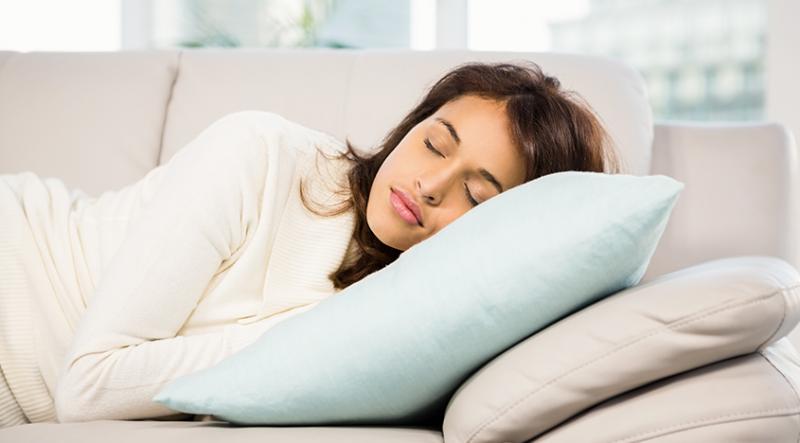01/08/2024
01/08/2024

NEW YORK, Aug 1: If you're finding it difficult to get a good night's sleep, your room temperature might be the culprit. Fluctuations in room temperature, whether hot or cold, can significantly impact sleep quality. Experts suggest that a dark, cool environment is most conducive to restful sleep. According to UT Health San Antonio, the optimal room temperature for sleep is between 60 and 67 degrees Fahrenheit, though this can vary slightly from person to person.
A 2023 study highlights that for adults who typically sleep in rooms ranging from 68 to 77 degrees Fahrenheit, raising the temperature to between 77 and 86 degrees Fahrenheit can decrease sleep quality and quantity by up to 10%. Chelsea Perry, owner of Sleep Solutions in Westborough, Massachusetts, explains that temperature plays a crucial role in transitioning through different sleep stages. "If your environment is too warm or too cold, it can disrupt this process, causing you to wake up or shift into lighter sleep stages."
How temperature affects sleep
Research from 2012 underscores the close relationship between sleep and body temperature. Our bodies follow a 24-hour circadian cycle that influences various functions, including sleep. As bedtime approaches, body temperature naturally decreases, promoting deeper sleep. This drop is driven by hormonal changes and increased blood flow to the skin, facilitating cooling. Mark S. Aloia, PhD, head of Sleep and Behavioral Sciences at Sleep Number, notes that a drop in skin temperature helps promote deeper sleep.
Impact of excessive heat
A room that's too warm can hinder your ability to fall asleep and maintain deep sleep stages. "Scientifically, our bodies need to be cool for the best possible sleep," says Aloia. Excessive heat can raise core body temperature, making it challenging to fall asleep and stay asleep. The problem is compounded by high humidity, which further disrupts sleep quality. Older adults and infants may be especially sensitive to heat due to their less efficient temperature regulation.
Impact of excessive cold
Conversely, a room that's too cold can also disrupt sleep. "A too-cold environment can make it difficult to get comfortable and stay asleep," says Aloia. Older adults, in particular, may require slightly warmer temperatures as their ability to conserve heat diminishes with age. Shelby Harris, a clinical psychologist in behavioral sleep medicine, suggests finding a balance to ensure comfort throughout the night.
Considerations based on age
Temperature preferences and requirements can vary with age and personal factors. Infants, for example, lack the temperature regulation capabilities of adults and are more susceptible to temperature extremes. The American Academy of Pediatrics advises monitoring babies for signs of overheating, such as hot or flushed skin, and dressing them appropriately for room temperature to reduce the risk of sudden infant death syndrome (SIDS).
Tips for achieving the ideal sleep environment
- Maintain a Consistent Temperature: Keeping your room temperature stable throughout the night is crucial for restful sleep. Perry advises avoiding drastic temperature changes as you prepare for bed.
- Choose the Right Bedding: Select bedding that helps regulate body temperature. High-performance polyester sheets, like those from Bedgear and Sheex, are recommended for their breathability and moisture-wicking properties. For natural fibers, 100% cotton with a 250-thread count is ideal for cooling.
- Experiment with Sleep Arrangements: Couples may experience temperature disruptions due to differing preferences. Consider sleeping separately or using adjustable beds with dual temperature settings to accommodate both partners.
- Utilize Cooling Aids: Use fans or programmable thermostats to maintain the ideal room temperature. Cooling sheets and blankets can be beneficial during hot weather, while electric blankets can provide warmth in colder months.
By adjusting these factors, you can improve your sleep quality and overall restfulness.


